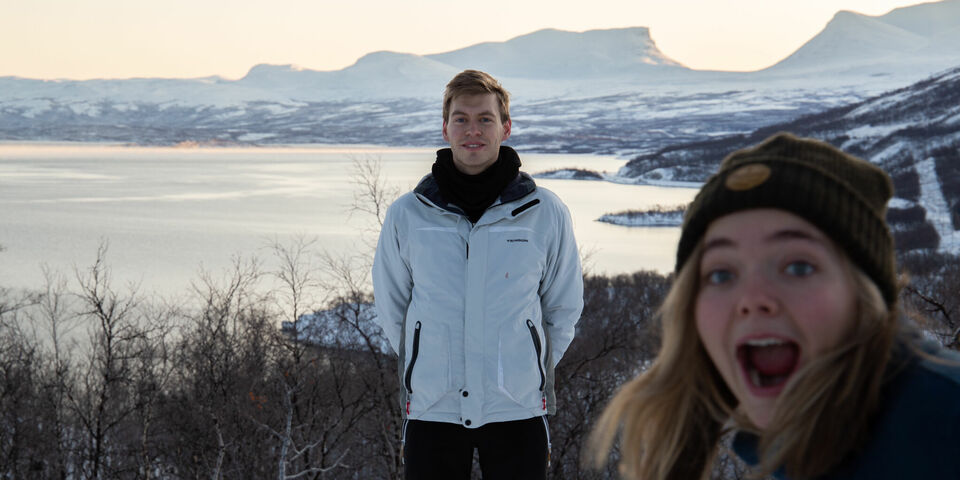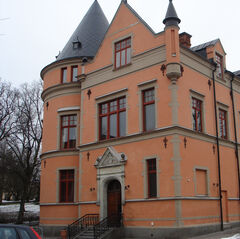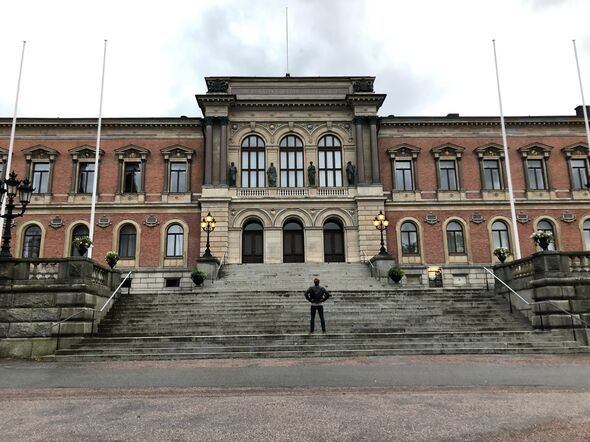Studying in Sweden: “Best place in the world to be right now”
What is it like to live through a global crisis in a country that is quite definitely a focus of attention in all this? Lucas van Dam, who last year graduated in Industrial Engineering from TU/e, gives us the story from Sweden - a country both celebrated and derided for its rather idiosyncratic approach to the corona crisis. “Uppsala is the best city in the world to be in during a pandemic.”
Plenty of research, a comprehensive Excel overview of choice Scandinavian destinations and a carefully written letter of motivation; all this brought Van Dam in August 2019 to Uppsala for the Master's of Industrial Management and Innovation. His earlier Bachelor's of Industrial Engineering at TU/e, following a less successful year at the Department of Mechanical Engineering, turned out to be “by chance a good choice”, which bred in Van Dam the certainty: my master's will be a much more informed decision. Keen to leave nothing to fate - and to an inevitable drawing of lots - he took charge of arranging his master's at Uppsala University.
The Swedish city's population numbers some one hundred and forty thousand, of whom almost one-third are students. Student life here is shaped by the thirteen so-called 'student nations' (a sort of oversized social association) and takes place entirely on the left bank of the River Fyris, which cuts Uppsala in two. Van Dam speaks of there being “a sort of parallel society” in the city. This is where he shares a student flat with eight housemates. Although, it should be said, contact among the eight is minimal. “In that respect, student culture here is really very different.”
Uppsala had been his home for a good seven months when coronavirus first extended its grip to Europe. “When various countries went into lockdown, my parents did suggest that it might be better if I went home.” But they did not insist, and before making any move Van Dam wanted to make sure he could hang on to his new digs, having spent his first months subletting a room.
In the meantime, the much debated ‘Swedish approach’ to the corona crisis was taking shape - and this gave citizens (Van Dam at least) courage. “The way they are handling it here would never be possible in the Netherlands. Sweden is much larger than the Netherlands; the average Swede has about twenty times as much space as the average Dutch citizen. The healthcare system is well organized and the ‘one-meter-fifty society’ is actually nothing new here. To start with, that struck me as a bit strange. You know, on the street here, people don't even glance at each other.”
Obedient
What's more, according to Van Dam, the Swedish are quite a bit more obedient than his own countrymen and women: “In the Netherlands people were still going en masse to the beach on a sunny day, especially in the beginning. You wouldn't see that happening here. People here listen closely to what the government says and follow the advice to the letter.”
Read on below the photo.
And even though some photos and reports in the Dutch media might lead us to suspect otherwise, restrictions are indeed in place in Sweden at the moment. Gatherings of more than fifty people are prohibited and at the previously mentioned student nations considerably fewer activities are being held. And with residents being strongly requested to stay at home as much as possible, “there are now noticeably fewer people out on the street”.
While it is true that primary and high schools stayed open, universities did close their doors and are currently teaching online. Stores, bars, cafés and, for example, hairdressing salons are now open as usual in many cases, albeit with far fewer customers than normal “but enough not to go bust. In restaurants, for example, you can no longer order at the bar; you stay seated at your table and everything is brought to you.”
Source of infection
Gyms were the main places the former TU/e student originally had his doubts about, he says, as they also kept their doors open. “Surely the ultimate source of infection, I thought. But everything is cleaned regularly and, besides, sport itself is good for your immune system.” As well as for some sense of daily routine and structure. “I had to force myself into some kind of rhythm; going to bed late and getting up late wasn't helping my productivity any.” All in all, Van Dam can say that actually his Swedish student life has “not changed dramatically” due to the corona crisis, with the exception that “I am working at home a bit more and seeing not quite as many people.” Laughing: “Rather a luxury, but I've even just been to the barber's.”
Read on below the photo.
The Swedish approach seems to be working, said epidemiologist Anders Tegnell, the plan's initiator, this week. And this view is shared by master's student Van Dam. With the country's capital a glaring exception: “Stockholm is very densely populated, almost all the country's cases of infection are occurring there. Expectations are that before the end of April, 70 percent of the city's residents will have had coronavirus.”
What this means for individual and herd immunity over the longer term is still very much an open question. But this uncertainty about the future, believes Van Dam, is no different in other countries where measures have indeed been stricter. For example, he says, Sweden is often compared with its neighbor Norway, which has considerably fewer corona victims, “but they'll catch up as soon as the country comes out of lockdown. Either way, to get society completely back to normal what we really need, I think, is a vaccine.”
As a fit and energetic person in his twenties running a statistically low risk, he could be nowhere better in the world, he says, than in Uppsala. Nonetheless, he hopes to come back to the Netherlands in June, “I think that will be possible. But if not, I can entertain myself here for a while longer.”





Discussion